|
|
 |
An independent view of the world
seen from Tokelau
The Independent New York Times
Tokelau, Saturday,
November 8,
2008 Weekend Edition, editor
- contact sumpinein@gmail.com
|
 |
|
|
|
|
PRESIDENT-ELECT BARACK OBAMA PLEDGES QUICK
ACTION |
President-elect Barack Obama pledged
quick action to revive the ailing U.S.
economy on Friday, emerging from a
meeting with key economic advisors and
saying a stimulus package would be his
first action as president. "I want
to see a stimulus package sooner rather
than later," Obama said. "If it does not
get done in a lame duck session [of
Congress], it will be the first thing I
get done as president of the United
States." Flanked by advisors including
former Treasury Secretary Robert Rubin
and Xerox Chairman and CEO Anne Mulcahy,
Obama said the American middle class
needs a "rescue plan" including
job-creation and an extension of
unemployment insurance benefits. He also
pledged to stick with the tax policies
unveiled during his historic run for the
White House and said he'd "review" the
implementation of the Bush
administration's plans to stabilize
financial markets. Obama took questions
for about 20 minutes after huddling with
his top advisors in Chicago, following
more gloomy news for the U.S. economy.
The U.S. labor market shed 651,000 jobs
in the past three months, driving the
unemployment rate to its highest point
in more than 14 years, the Labor
Department reported Friday.
|
|
|
Conservationists are excited about the
arrival, which is the first birth of a
pygmy hippo at Taronga zoo in Sydney,
Australia, in 23 years. |
 |
 |
|
A UN study says that in financial
terms currently the loss of forest
equals some US$2 to US$5 trillion every
year. Who is going to do something about
all this? Indonesian authorities
have pledged to stop the loss of forests
and species in Sumatra, one of the
world's most ecologically important
islands. Representatives of the island's
10 provinces, national government and
the environment group WWF launched the
deal at the World Conservation Congress.
Sumatra has lost about half of its
forest cover in the last 20 years. It is
home to a number of important and iconic
species such as the tiger, orangutan,
rhinoceros and elephant. The island has
suffered floods and forest fires in
recent years that have been widely
attributed to illegal forest clearance.
Two years ago, President Susilo Bambang
Yudhoyono was forced to apologise to
Singapore and Malaysia when smog from
burning Sumatran forest covered the
neighbouring countries. The need to deal
with these issues appears to have played
a big part in persuading the authorities
to act. "In the rainy months, we are
seeing landslides and flooding more
often, and it is time to make a real
change," said Indonesia's deputy
environment minister Hermien Roosita at
a news briefing here. "Every governor
from the 10 provinces and four
(national) ministries have signed this
monumental commitment to ecosystem
restoration of the island and protecting
the remaining natural forest." More than
13% of the island's forests lie on peat,
which contain vast amounts of carbon
that would be lost to the atmosphere if
the trees were removed, accelerating
climate change. "When you look at the
flora and fauna in this area and the
rate of loss that's going on, this is a
substantial commitment to protect and
restore forests," said Gordon Shepherd,
WWF's director of global policy. The
government has already regulated to stop
clearance of virgin forest for palm oil
plantations - grown for food, industry
and biofuels - but the government
acknowledges the ban may not be
completely effective. |
|
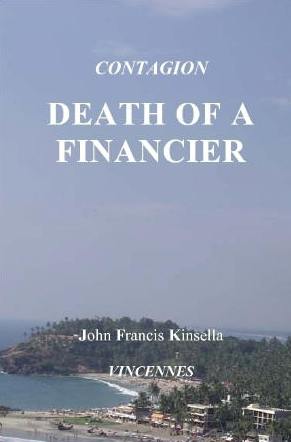
|
Read DEATH OF A
FINANCIER by JOHN
FRANCIS KINSELLA |
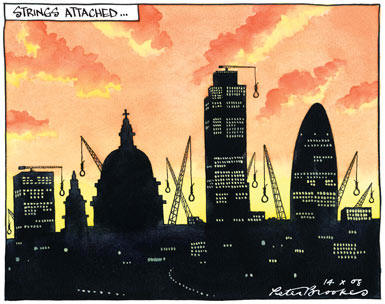
|
Tom Barton, a City
mortgage broker, decides
to quit his business in
the wake of the subprime
crisis and arrives in
Kovalam, in the south of
India. In the Maharaja
Palace he finds himself
in the company of
holiday makers from the
UK, Scandinavia and
Russia. Stephen Parkly,
the CEO of a successful
City bank, and his young
wife Emma are taking a
well earned year end
break. Parkly falls
gravely ill with a
mysterious infection,
whilst back in the City,
unknown to him his
mortgage and investment
bank, West Mercian
Finance is in grave
difficulties. Ryan
Kavanagh, a doctor,
comes to Emma’s aid with
the help of Barton,
after an attempted
cover-up by the Indian
authorities, who fear
for their tourist
industry and more
especially medical
tourism, as the disease
threatens the resort
with the tourist season
in full swing. Thousands
of British tourists
enjoying the sun are
unaware of the pending
disaster, many are
equally unaware their
savings about are to be
wiped out in the West
Mercian collapse. |
|
|
|
|
PRESIDENT-ELECT
BARACK OBAMA |

|
Can Obama really
make a
difference to
the broken lives
of so many of
his fellow
African-Americans?
Will the
enthusiasm and
excitement he
has generated
save him from
accusations of
betrayal, should
change come more
slowly than his
supporters
expect? Or will
his children
Malia and Sasha
Obama remain
rare and lucky
exceptions to
the numbingly
bleak experience
of their peers?
OBAMA aides
moved quickly
last week to
dampen
expectations.
“It’s important
that everyone
understands that
this is not
going to happen
overnight,” said
Robert Gibbs,
who is expected
to become
Obama’s White
House press
spokesman.
“There has to be
a realistic
expectation of
what can happen
and how
quickly.” |
|
|
|

|
Indonesian
security
forces
are on high
alert after
the state
execution of
three
Islamic
militants
for the 2002
Bali
bombings
that killed
202 people.
There were
reports of
clashes as
hundreds of
supporters
attended
burials in
the men's
home
villages in
Java. Imam
Samudra,
Amrozi
Nurhasyim
and Ali
Ghufron (Mukhlas)
were killed
by firing
squad at
0015 (1715
GMT on
Saturday).
They were
found guilty
of planning
twin attacks
on
nightclubs
at the
resort of
Kuta,
popular with
Western
tourists.
Security
forces are
on alert
across the
country amid
fears of
reprisal
attacks.
Australia,
which lost
88 of its
citizens in
the attacks,
has issued a
warning
against
travel to
the country.
Britain and
the US have
done
likewise.
|
|
|
DUBAI
TREMBLES |
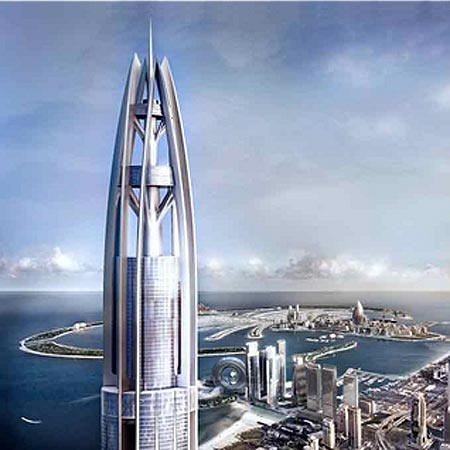 |
|
With
its kilometre high
project Dubai prides
itself on its shiny
image, something that
the city has spent the
last decade perfecting
and it is not about to
let all that hard work
go to waste, global
recession or not. So, if
anywhere can put a
positive spin on
economic meltdown, then
Dubai will have a good
go. So it was that while
the rest of the world
waited anxiously for
news on bank bailout
plans, Dubai announced
it would built the
world's tallest tower.
Dubai is anxious to
preserve its image of
opulence, whatever the
stocks say. As housing
prices were wobbling
elsewhere, the huge
annual property
exhibition reported
remaining busy and
potential investors were
encouraged by a survey
saying real estate
prices in the Middle
East will significantly
out perform all other
regions. No-one sensible
is now predicting the
continuation of the
exponential price
increases that have been
seen in Dubai since it
opened its property
market to foreigners,
but there is a belief
prices will continue to
rise more steadily - not
least because rents are
extortionate and the
increasing number of
people moving to the
city all need somewhere
to live. |
|
|
|
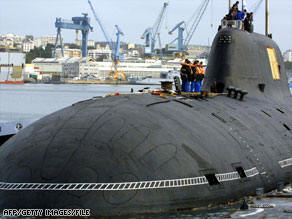
|
At
least 20 people have died in
an incident involving the
failure of a fire
extinguishing system on a
Russian nuclear submarine,
local media report.
Russian Pacific Fleet
spokesman Igor Dygalo said
both sailors and shipyard
workers died in the
incident, which occurred
during sea trials. He said
the submarine itself had not
been damaged and there had
been no radiation leaks.
Military prosecutors are
investigating the incident.
The submarine, whose name
and class have not been
officially revealed, has
been ordered to suspend sea
trials and return to port in
the far eastern Primorskiy
territory, Capt Dygalo said.
"I declare with full
responsibility that the
reactor compartment on the
nuclear-powered submarine is
working normally and the
radiation background is
normal," he said, quoted by
Itar-Tass news agency.
|
|
|
WHAT A
FILM |

|
PARIS
HILTON's new movie has been
savaged by critics, who fear
director DARREN LYNN BOUSMAN's
toughest job was editing the
socialite out of his film. The
Saw films director had admitted
he had reservations about
signing Hilton up for his movie,
but insists she was a pleasure
to work with. But critics state
she isn't a pleasure to watch on
screen. Los Angeles Times critic
Mark Olsen writes, "The film is
bad - not good-bad, tacky-bad or
fun-bad, just plain awful and
nearly unwatchable." And he's
even more scathing of Hilton's
performance in the bizarre
cosmetic surgery horror musical.
Olsen adds, "It seems the
production has had to cut around
the ubiquitous Paris Hilton, as
she is never glimpsed in
anything but brief, fleeting
shots and her hoarse bark of a
singing voice is used as little
as possible." Meanwhile, the San
Jose Mercury suggests the film
is "as bad as it gets", adding
it's "easily one of the worst
movies of the year, if not all
time." |
|
|
|
The
map shows hectares' worth consumed in goods and
services |
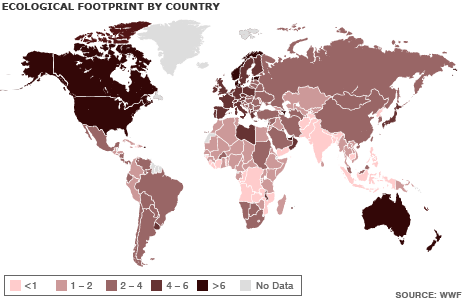 |
|
The planet is headed for an
ecological "credit crunch", according to
a report issued by conservation groups.
The document contends that our demands
on natural resources overreach what the
Earth can sustain by almost a third. The
Living Planet Report is the work of WWF,
the Zoological Society of London and the
Global Footprint Network. It says that
more than three quarters of the world's
population lives in countries where
consumption levels are outstripping
environmental renewal.
This makes them "ecological debtors", meaning that they are drawing
- and often overdrawing - on the
agricultural land, forests, seas and
resources of other countries to sustain
them. The report concludes that the
reckless consumption of "natural
capital" is endangering the world's
future prosperity, with clear economic
impacts including high costs for food,
water and energy. "If our demands on the
planet continue to increase at the same
rate, by the mid-2030s we would need the
equivalent of two planets to maintain
our lifestyles," said WWF International
director-general James Leape. Dr Dan
Barlow, head of policy at the
conservation group's Scotland arm,
added: "While the media headlines
continue to be dominated by the economic
turmoil, the world is hurtling further
into an ecological credit crunch." The
countries with the biggest impact on the
planet are the US and China, together
accounting for some 40% of the global
footprint. The report shows the US and
United Arab Emirates have the largest
ecological footprint per person, while
Malawi and Afghanistan have the
smallest. "The events in the last few
months have served to show us how it's
foolish in the extreme to live beyond
our means," said WWF's international
president, Chief Emeka Anyaoku.
"Devastating though the financial credit
crunch has been, it's nothing as
compared to the ecological recession
that we are facing." He said the more
than $2 trillion (£1.2 trillion) lost on
stocks and shares was dwarfed by the up
to $4.5 trillion worth of resources
destroyed forever each year. The
report's Living Planet Index, which is
an attempt to measure the health of
worldwide biodiversity, showed an
average decline of about 30% from 1970
to 2005 in 3,309 populations of 1,235
species. An index for the tropics shows
an average 51% decline over the same
period in 1,333 populations of 585
species. |
|
|
|
|
|
CHINESE INVESTORS
LOSE ALL |
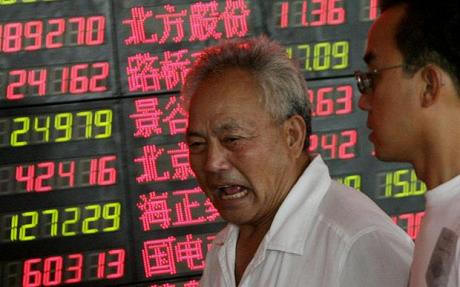 |
|
The
losses, around £141 per
day per person, were
accumulated on the
Shanghai Stock Exchange,
China's benchmark index,
which has 57.5m
registered investors. It
has slumped by 71pc in
the past year, and
opened down 1.56pc this
morning at 1736 points.
The collapse of China's
stock exchange has wiped
out the savings of
millions of families and
small investors who
believed the Chinese
government would prop up
the market. China's
eight publicly-traded
brokerages saw their
profits drop 79pc in the
third quarter as
investors fled the
market. Excluding
Pacific Securities,
which suffered a net
loss of 88.46m rmb, the
brokers all made money
but complained that
trading volumes had
fallen dramatically and
companies had pulled
flotations. After a
relatively robust recent
performance, the
Shanghai index fell
after the Bank of China
revealed that it still
holds $9bn (£5.5bn) of
mortgage-backed US
securities. The bank's
holding of Fannie May
and Freddie Mac debt
dropped from $10.6bn in
June to $6bn. In Hong
Kong, the Hang Seng
index edged down 2.6pc
to 14116 points while in
Japan, the Nikkei 225
fell 0.65pc to 8945
points. "The rally is
seen to be over," said
Francis Lun, general
manager at Fulbright
Securities. "It's time
to take profit."
|
|
THE STATE OF
BANKING CREDIT
RESEMBLES THIS
DRIED OUT MUMMY
BELIEVED TO BE
THE SON OF
RAMESES III |
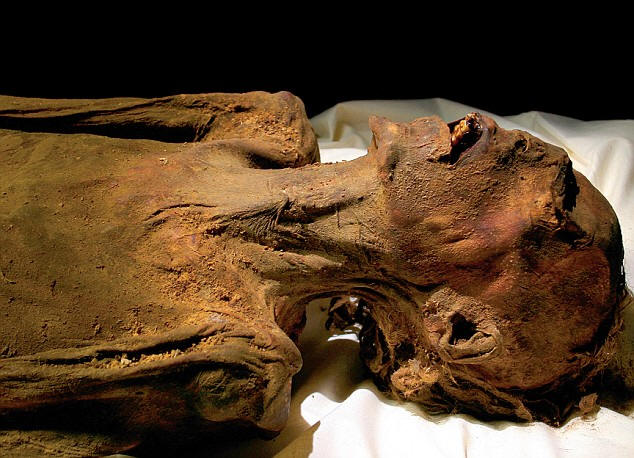 |
|
|
IT WASN'T
ONLY THE
STOCK MARKET
THAT WENT
DOWN THE TUBE |
 |
|
|
|
THE BANK OF
ENGLAND TO MAKE DISMAL ECONOMIC FORECAST FOR UK |
 |
|
Whilst others
enjoyed yachts
Champagne and holidays at YOUR expense... |
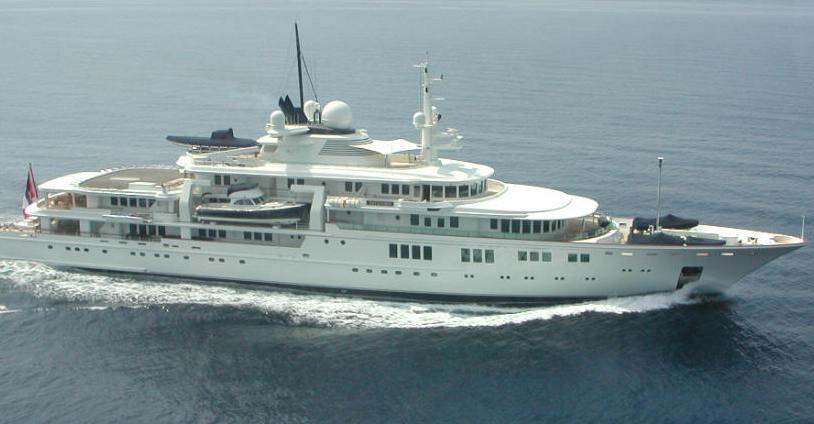
|
David Cameron was
labelled "Three Yachts" after it emerged
that he spent a second summer holiday
boat hopping in the lap of luxury. At
the same time John Prescott rejected
claims that he led a lavish lifestyle in
Government, insisting he did not enjoy
the wining and dining of high office.
The Conservatives slammed Mr Prescott
for living the “high life”, raking in
thousands on food, drink and travel
expenses heading the “non-job” Deputy
Prime Minister’s Office. Mr Prescott,
who has been fronting a BBC series on
class, denied he had benefited from the
cash and insisted he was only doing the
bidding of former Prime Minister Tony
Blair. |
|
|
|
|
|
Since food prices began to rise
100 million more people have been pushed into poverty,
according to the World Bank, with as many as two billion
on the verge of disaster. Almost half the world's
population, let's remember, live on less than $2.50 per
day. Millions die annually of hunger and starvation, and
more than a billion do not have access to fresh water. |
With the world financial crisis
these numbers are poised to rise dramatically with
population growth, dwindling natural resources and
higher consumer prices across all goods and services. So
as the stock market tumbles and the world economy
falters, it's important to remember that it's more than
financial losses we are talking about, it's the loss of
life. |
|
|